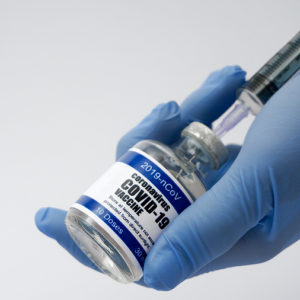Governments around the world are negotiating with drug companies to secure COVID-19 vaccines. But in many countries, those talks are hitting a snag.
Officials are objecting to companies’ insistence on legal liability shields as a condition for supplying the vaccine. Pfizer, in particular, has requested protection from lawsuits filed by people who take the vaccine and then experience rare adverse effects.
Liability protections are an entirely normal, and essential, provision in drug purchasing agreements. In fact, here in the United States, pharmaceutical companies have been protected from vaccine injury lawsuits for decades. Around the world, two dozen countries provide similar protections. It’s completely consistent for companies to want the same type of protections for their COVID-19 vaccines.
The fact that governments are negotiating for COVID-19 vaccines just one year after the pandemic began spreading across the world is remarkable — and clear evidence of how well the life sciences ecosystem functions. Many public health experts thought it would take years to invent these vaccines. Some questioned whether we’d ever have inoculations against the novel coronavirus.
Yet it took drug companies just six weeks from the time COVID-19 was genetically sequenced — in January 2020 — to start clinical trials on the first vaccine candidate. Pfizer’s vaccine, which is 95 percent effective, received FDA approval in December, less than a year after the first reports of COVID-19 emerged from China. Since then, the FDA has authorized the Moderna and Johnson & Johnson vaccines for emergency use.
These vaccines exist today only because of a legal framework that encourages drug development. Rare, adverse reactions are inevitable with any medicine, especially ones administered to hundreds of millions of people.
Without liability shields, biotech firms couldn’t justify the risks of vaccine research. What company would agree to pour billions of dollars into vaccine development, knowing it could be sued for untold damages each time someone has a rare reaction? Pfizer alone spent $2 billion of its own money to rapidly create, manufacture, and distribute its vaccine. Other manufacturers invested enormous sums in their candidates.
To encourage such investments, the U.S. government has granted developers of certain vaccines protection from lawsuits since 1986, when Congress passed the National Childhood Vaccine Injury Act. Prior to this law, many drug companies had stopped manufacturing certain vaccines since liability insurance had become prohibitively expensive.
In 2005, Congress passed the Public Readiness and Emergency Preparedness Act – commonly known as the PREP Act — to cover medical products needed in public health emergencies.
There are limits to liability protection, of course. Under the PREP Act, a company can still be held liable for injuries resulting from “willful misconduct.” But in general, laws in the United States — and in much of the developed world, for that matter — protect vaccine developers
Liability protections don’t merely incentivize vaccine
The faster we inoculate the world, the faster we can return to normal. Protecting drug companies from vaccine-related lawsuits is a commonsense way to ensure that COVID-19 shots are delivered quickly.

